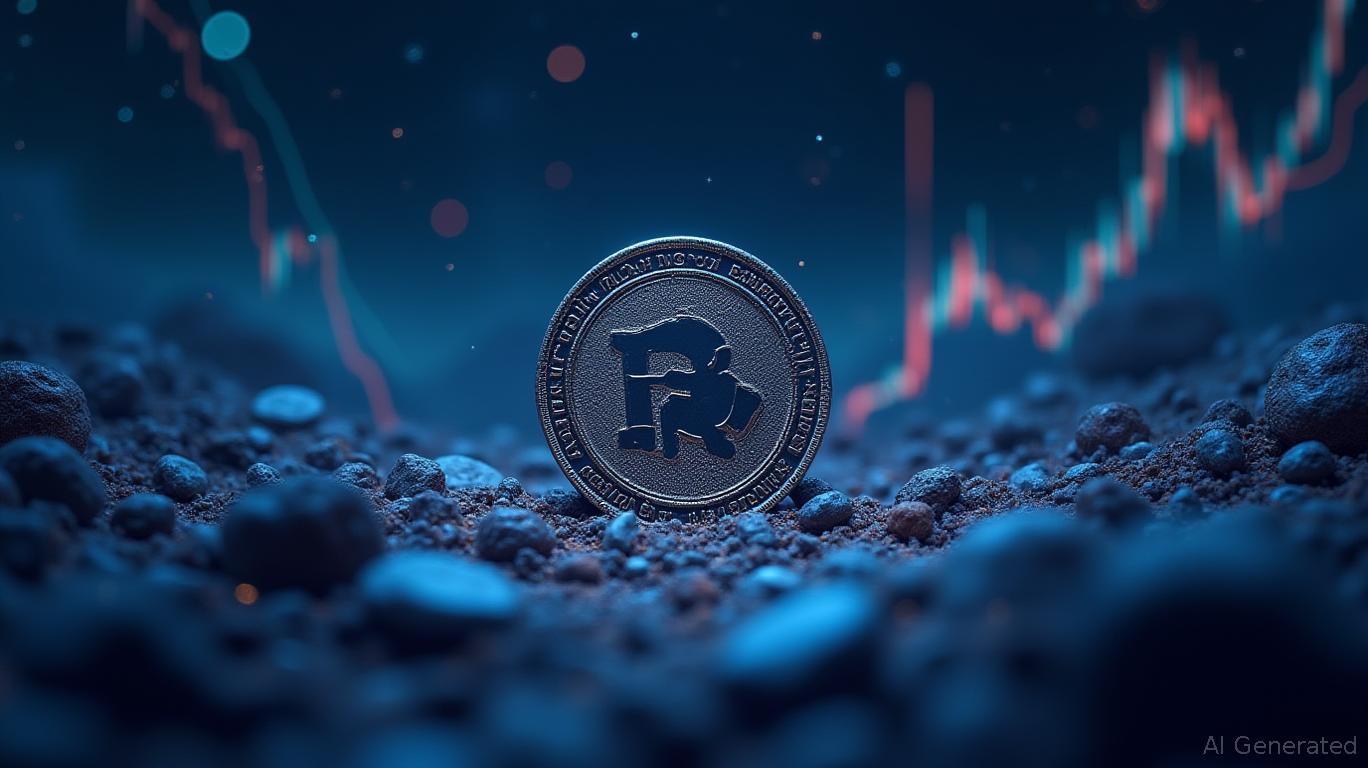South Korea's central bank places its stablecoin ambitions on confidence rather than technology
- South Korea's central bank warns private stablecoins lack trust and institutional credibility, urging banks to lead future initiatives. - The Bank of Korea cites historical crises and the 2023 SVB collapse to highlight depegging risks, contrasting global trends in Kyrgyzstan and Hong Kong. - Critics argue the "bank-first" model risks missing crypto opportunities as VC funding and CBDC experiments expand globally. - Diplomatic tensions and rising gold/Bitcoin prices challenge fiat stability, with experts
South Korea’s central bank has taken a firm stance against privately issued stablecoins, emphasizing that the foundation of currency stability lies in public trust rather than technological innovation. In
The BOK’s analysis referenced historical examples, such as the free-banking period in 19th-century America and Korea’s own Dangbaekjeon crisis, to highlight the risks associated with private money creation. The report also pointed to the 2023 failure of Silicon Valley Bank, when

In contrast, Kyrgyzstan has adopted a different strategy, introducing a stablecoin pegged to the som on the
Hong Kong is also navigating a challenging environment as China puts a hold on stablecoin initiatives within the city. Although Beijing’s regulatory caution has tempered some optimism, analysts believe that competition with the U.S. will encourage further innovation. Yifan He of Red Date Technology,
The BOK’s cautious approach stands in contrast to the rapid expansion of crypto-related infrastructure. Recent
South Korea’s diplomatic context also plays a role. President Lee Jae-myung, aiming to strengthen the nation’s international presence after the martial law crisis, has highlighted the need to balance competition with China and cooperation with the U.S. in an
While the BOK advocates for a “bank-led” approach, some critics warn that this conservative view could cause South Korea to miss out on opportunities in a decentralized crypto economy. Rich O., APAC regional manager at OneKey, pointed out that the value of fiat currencies is already being challenged, as seen in the rising prices of gold and
Disclaimer: The content of this article solely reflects the author's opinion and does not represent the platform in any capacity. This article is not intended to serve as a reference for making investment decisions.
You may also like
Caribbean Prepares for Hurricane as Geopolitical Strains and Reductions in Food Assistance Loom
- Hurricane Melissa, a Category 4 storm, threatens Jamaica with catastrophic flooding and landslides as it intensifies before landfall. - U.S.-Trinidad military drills face Venezuela's "false-flag" accusations, highlighting regional tensions amid natural disaster preparations. - Trump administration's Nov. 1 food aid cuts draw bipartisan criticism, forcing states to redirect SNAP recipients amid hurricane supply chain risks. - U.S.-China trade talks aim to avoid tariffs over rare earths, while Canada faces

Bitchat's Bluetooth system remains robust while hurricanes severely damage Jamaica's infrastructure
- Bitchat, a Bluetooth-based decentralized messaging app, became Jamaica's second-most downloaded app as Hurricane Melissa crippled infrastructure with 185-mph winds. - The storm killed 30+ people across the Caribbean, including 23 in Haiti, while the app enabled encrypted communication during power outages and flooding. - Bitchat's surge mirrored crisis adoption in Nepal, Indonesia, and Madagascar, highlighting its utility in disaster zones with decentralized, censorship-resistant networks. - The Trump ad

MoonBull's Scarcity Approach Surpasses TON, LINK's Lackluster Progress
- MoonBull's presale raised $450k from 1,500+ investors, projecting 9,256% returns if tokens hit $0.00616. - Outpaces stagnant TON and LINK amid market volatility, leveraging 23-stage pricing and 95% APY staking. - Mobunomics allocates 73.2B tokens with 50% presale scarcity and 11% referral incentives to boost adoption. - Meme-driven narrative combines viral marketing with utility, attracting both retail and institutional investors. - Stage 5 marks final entry before listing, with escalating prices and lim

HBAR ETF Gets Green Light, But Convincing Altcoin Doubters Remains Challenging
- Hedera's HBAR token dropped 6% post-ETF approval, contrasting with Solana's $56M debut volume. - The $8M HBAR ETF launch highlights altcoin market skepticism despite regulatory progress and institutional backing. - Technical indicators like death cross and declining on-chain metrics signal bearish momentum for HBAR. - Analysts note ETFs provide regulated institutional access, though broader crypto volatility and SEC delays dampen immediate adoption. - Hedera's enterprise partnerships and USDC growth on i
